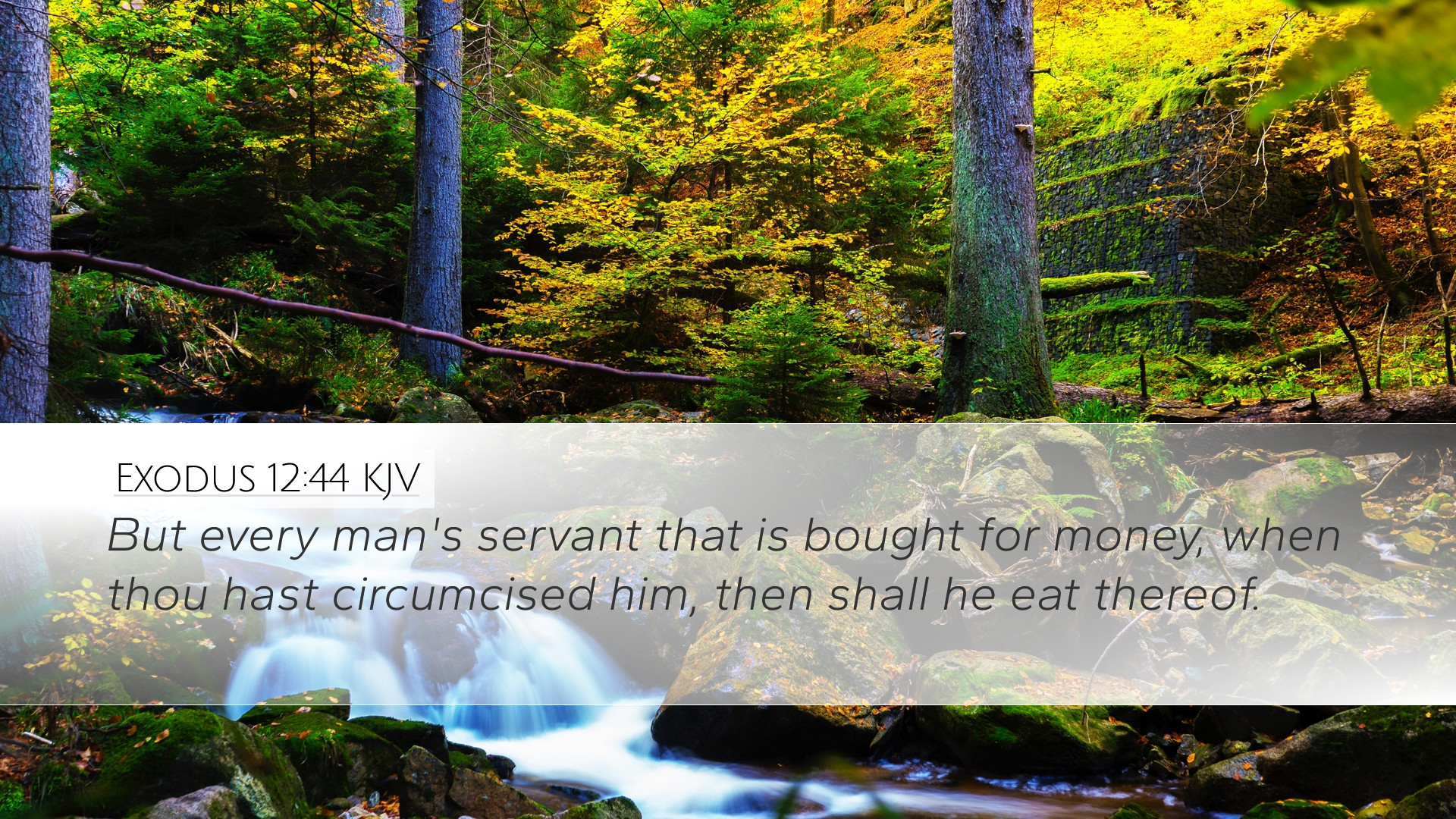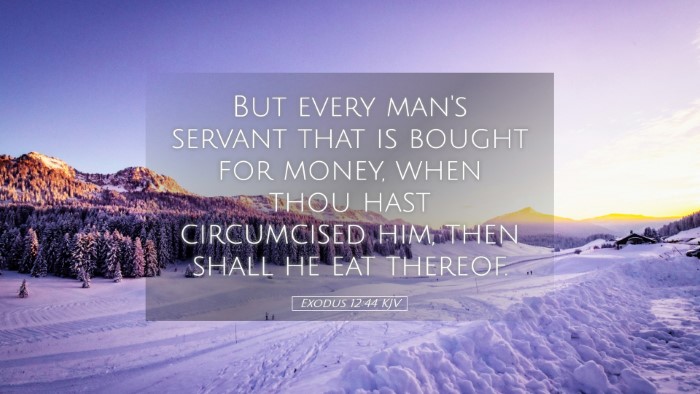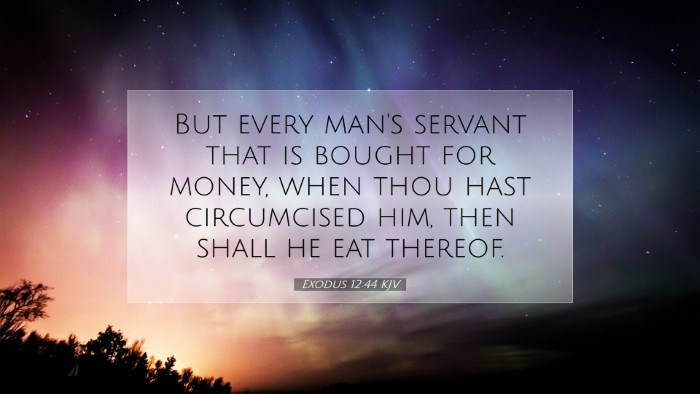Commentary on Exodus 12:44
Exodus 12:44 states, "But every man's servant that is bought for money, when thou hast circumcised him, then shall he eat thereof." This verse is part of the broader narrative concerning the Passover and the instructions given by God to the Israelites before their Exodus from Egypt. The focus of this commentary is on the theological implications and practical applications of circumcision and inclusion of servants in the Passover meal.
The Context of Exodus 12:44
The Passover was instituted as a significant event in the history of Israel, representing God's deliverance of His people from bondage. The surrounding verses (Exodus 12:43-50) serve to emphasize the requirements placed upon the Israelites and those who would join them in partaking of the Passover meal.
Theological Insights
Matthew Henry in his commentary elaborates on the importance of the Passover as a symbol of redemption. He highlights that the Passover is not merely a meal but a covenantal act that binds the community of believers, extending even to their servants. The act of circumcision signifies a deeper spiritual commitment and a covenant relationship with God.
Albert Barnes emphasizes the inclusive nature of the Passover. The requirement that a servant must be circumcised before participating indicates that salvation and community belong to all who submit to God’s covenant. It's a powerful reminder that in Christ, there is no distinction between individuals based on status or origin.
Adam Clarke points out the significance of "circumcision" as an outward sign of the covenant. He notes that this physical act represents a transformative relationship with God. Thus, the servant, once circumcised, is to be considered an equal participant in God’s promises alongside the Israelites, embodying the redemptive aspect of the Passover.
Practical Applications
This verse urges leaders and scholars to consider the implications of inclusivity in God’s redemptive plan. The principle that everyone who wishes to partake in God's blessings must first submit to His covenant is crucial for teaching in contemporary church settings. It extends an invitation to those who may feel marginalized or outside of community life to partake in the fullness of God’s promises.
- Inclusivity: Just as the servant must be included upon circumcision, the church today must strive to include those who seek to follow Christ, regardless of their background or previous circumstances.
- Understanding Covenant: Leaders must educate congregants on what it means to be in covenant with God, taking physical and spiritual commitments seriously.
- Community and Fellowship: The act of sharing the Passover signifies a deep communal bond that transcends societal hierarchies, encouraging unity in diversity within the church.
Conclusion
Exodus 12:44 serves as a profound reminder of the nature of God’s covenant and the accessibility of His grace to all who are willing to enter into a relationship with Him. The insights gleaned from public domain commentaries affirm that participation in God's promises requires an earnest response to His call. For pastors, students, scholars, and theologians, this verse underscores the importance of teaching inclusivity, understanding covenant, and fostering true community within the Body of Christ.


